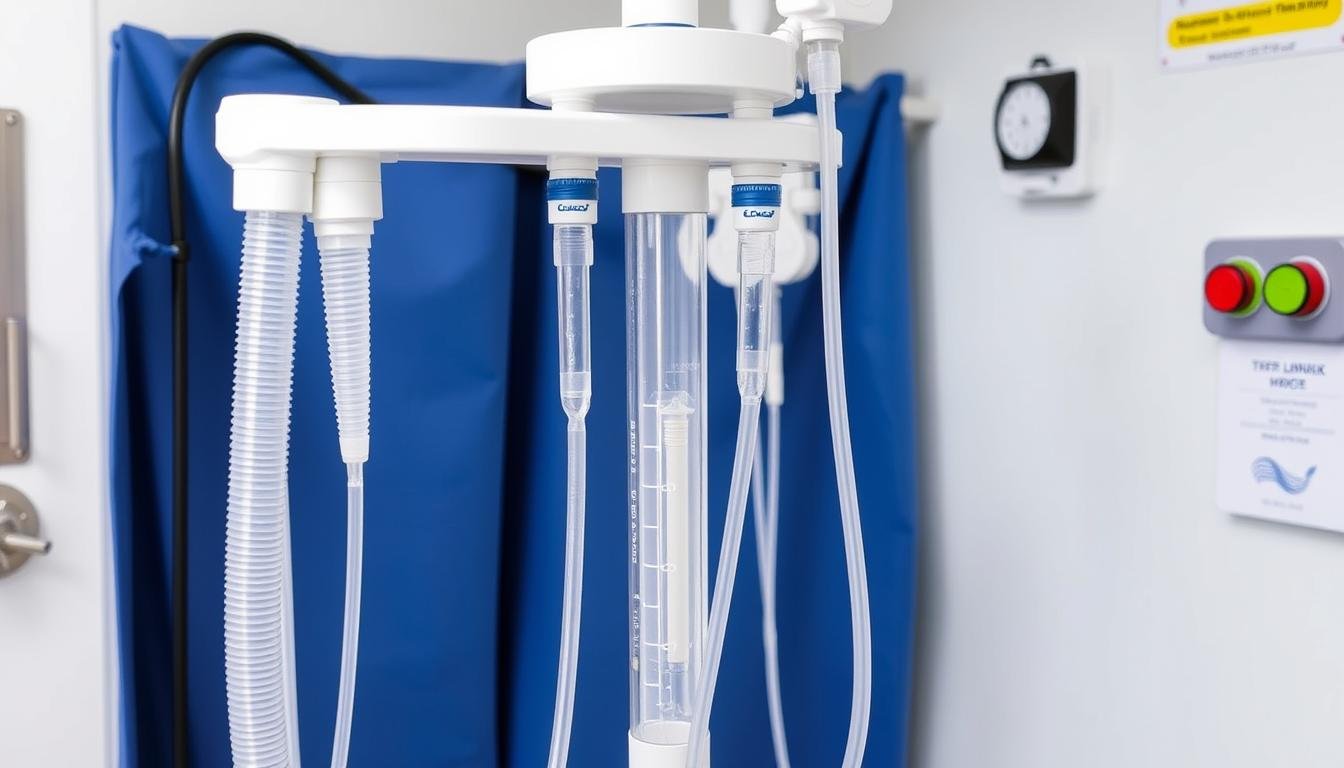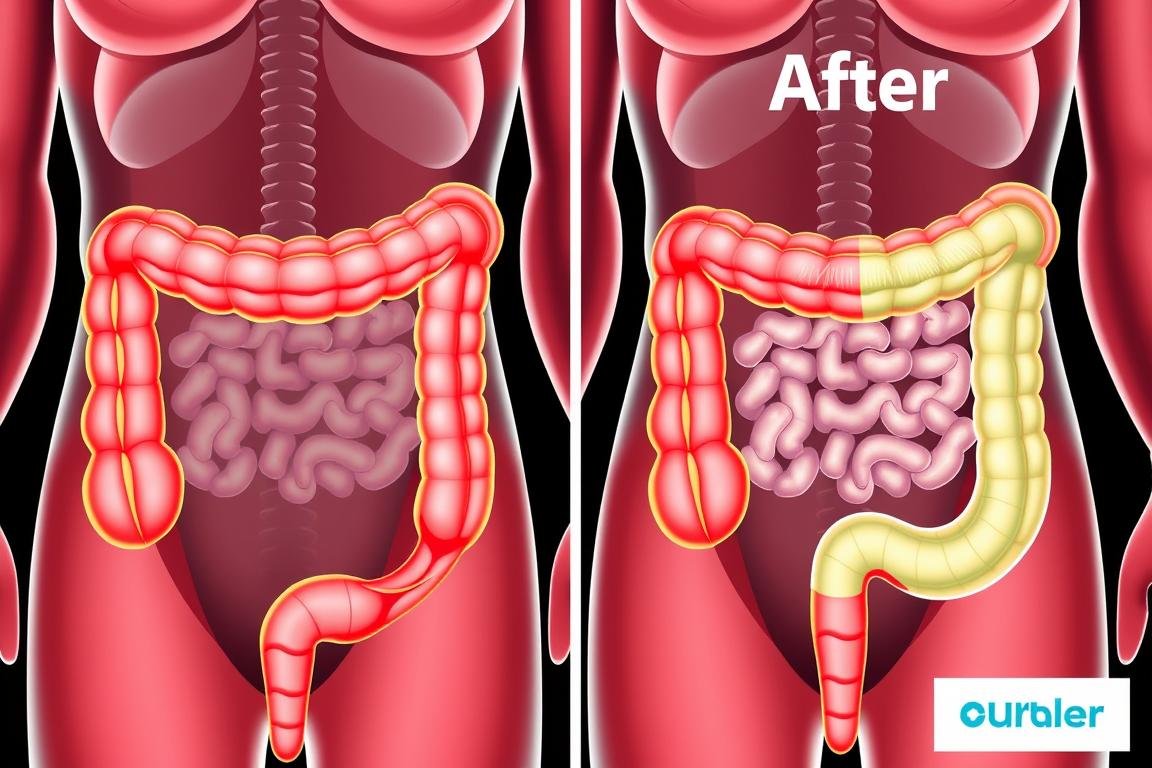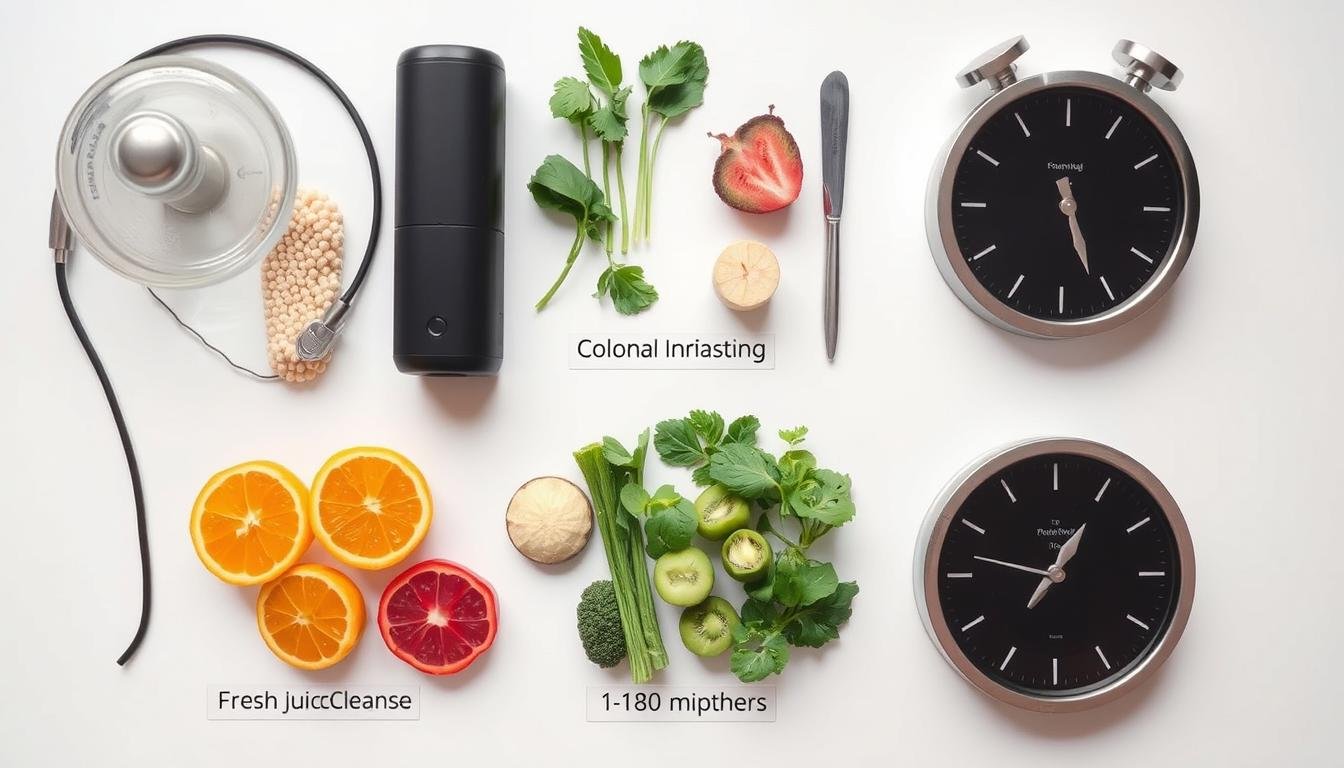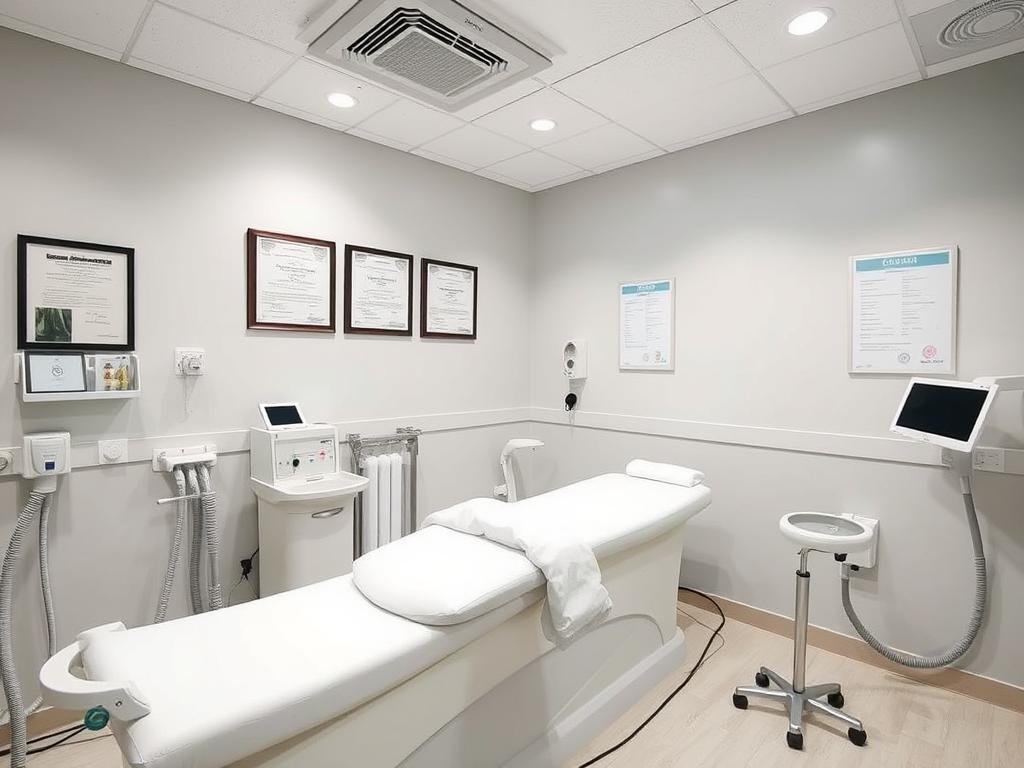Colon Hydrotherapy Device Manufacturer

Disclaimer: Consult a healthcare professional before trying colonic irrigation. This article is for informational purposes only and does not constitute medical advice.
What Is Colonic Irrigation and How Does It Work?
Professional colonic irrigation equipment in a clinical setting
Colonic irrigation, also known as colon hydrotherapy, is a procedure that involves flushing the colon with water to remove waste material and toxins from the large intestine. Unlike an enema, which affects only the lower part of the colon, colonic irrigation aims to cleanse the entire length of the large intestine.
During a typical session, a trained hydrotherapist inserts a disposable tube into the rectum while you lie on a specialized table. Approximately 60 liters of filtered water flows gently into the colon through this tube. The water, sometimes infused with herbs or probiotics, circulates throughout the large intestine, loosening accumulated waste material. This waste is then expelled through a different tube, completing the detoxification process.
Sessions typically last 45-60 minutes and are conducted in a private, clinical setting. The procedure is designed to be comfortable, with temperature and pressure controls adjusted to individual comfort levels. Many practitioners emphasize that modern colonic irrigation equipment is designed with safety and hygiene as priorities.
Considering Colonic Irrigation?
It’s important to consult with a qualified healthcare provider before trying any new health procedure.
7 Potential Colonic Irrigation Benefits for Digestive Health
While scientific research on colonic irrigation benefits continues to evolve, proponents suggest several potential advantages for digestive health and overall wellbeing. Here are seven commonly reported benefits:

Many report increased energy levels after colonic hydrotherapy sessions
1. Toxin Removal
Proponents suggest that colonic irrigation helps remove accumulated toxins from the colon wall. A small 2016 pilot study published in the journal Techniques in Coloproctology noted that colonic irrigation might help flush out harmful substances that could otherwise be absorbed through the intestinal wall.
2. Improved Digestive Function
Some practitioners report that removing impacted waste material may help improve overall digestive function. By clearing blockages, the natural peristaltic movement of the intestines may function more efficiently, potentially reducing bloating and improving regularity.
3. Reduced Bloating and Gas
Many clients report significant reduction in abdominal bloating and gas following colonic irrigation sessions. This benefit may be particularly noticeable for those who experience chronic bloating related to digestive issues.
4. Potential IBS Symptom Relief
A small 2016 study published in Techniques in Coloproctology found that some patients with irritable bowel syndrome reported improvement in symptoms after colonic irrigation. While more research is needed, this suggests potential benefits for some IBS sufferers.
5. Increased Energy Levels
Many individuals report feeling more energetic after colonic irrigation sessions. Proponents suggest this may result from the body redirecting energy normally used for processing waste material in the colon to other bodily functions.
6. Enhanced Nutrient Absorption
Some practitioners suggest that by clearing the intestinal walls of accumulated waste, the body may be better able to absorb nutrients from food. This theory proposes that a cleaner colon allows for more efficient nutrient uptake through the intestinal walls.
7. Improved Microbiome Balance
While initial cleansing removes both beneficial and harmful bacteria, some practitioners suggest that colonic irrigation, when followed by probiotic supplementation, may help reset the gut microbiome to a healthier balance. This remains an area where more research is needed.
“After struggling with chronic bloating for years, I decided to try colonic irrigation as a last resort. After my third session, I noticed significant improvement in my digestive comfort and overall energy levels. The procedure was much more comfortable than I expected, and the results have been worth it for me.”

Illustration showing potential colon condition before and after hydrotherapy
Understanding Potential Risks and Medical Perspectives
While proponents highlight colonic irrigation benefits, it’s essential to understand the potential risks and medical perspectives. The medical community generally approaches colonic irrigation with caution, as the procedure is not without risks.

Medical consultation is essential before trying colonic irrigation
Potential Benefits
- May help with preparation for colonoscopy procedures
- Some report relief from bloating and digestive discomfort
- Limited evidence suggests possible benefit for some IBS patients
- Can provide a sense of cleansing and renewal
Potential Risks
- Dehydration and electrolyte imbalance
- Potential disruption of beneficial gut bacteria
- Risk of bowel perforation (rare but serious)
- Possible infection if equipment is not properly sterilized
- Not recommended for people with certain medical conditions
According to a review published in The Journal of Family Practice, there is limited scientific evidence supporting the health claims associated with colonic cleansing. The body’s natural detoxification systems—primarily the liver and kidneys—are generally efficient at removing waste and toxins without additional intervention.
“I was skeptical about trying colonic irrigation, but after researching qualified practitioners, I found someone who took the time to explain the procedure and address my concerns. The experience was professional and dignified. While I can’t say it’s a miracle cure, I did notice improvements in my digestive comfort and less bloating after completing a series of sessions.”
Important: Colonic irrigation is not recommended for individuals with certain health conditions, including inflammatory bowel diseases (Crohn’s disease, ulcerative colitis), severe hemorrhoids, heart or kidney disease, or recent bowel surgery. Always consult with a healthcare provider before undergoing this procedure.
Comparing Colonic Irrigation to Other Detoxification Methods
When considering detoxification approaches, it’s helpful to understand how colonic irrigation compares to other popular methods. Each approach has different mechanisms, benefits, and considerations.

Different approaches to detoxification and digestive health
| Detox Method | Primary Mechanism | Duration | Intensity | Professional Supervision |
| Colonic Irrigation | Direct colon cleansing with water | 45-60 minutes per session | High | Required |
| Juice Cleanse | Nutrient-rich liquids, digestive rest | 1-7 days typically | Medium | Optional |
| Intermittent Fasting | Metabolic shift, autophagy | Ongoing schedule | Low-Medium | Recommended initially |
| Fiber-Based Cleanse | Natural bulking, gut motility | 3-30 days | Low | Not required |
| Herbal Supplements | Stimulate digestive organs | Varies by product | Low-Medium | Recommended |
While colonic irrigation offers a direct approach to colon cleansing, other methods like juice cleanses and fiber-based approaches work more gradually and less invasively. For those interested in digestive health but concerned about the intensity of colonic irrigation, these alternatives may be worth exploring. Consider consulting with a healthcare provider about which approach might be most appropriate for your specific health needs.
“I’ve tried various detox methods over the years, from juice fasting to herbal cleanses. When I eventually tried colonic irrigation, I found it to be more immediate in its effects. While juice cleanses gave me a general sense of lightness over several days, colonic irrigation provided a more pronounced feeling of relief from bloating after just one session. Each method seems to have its place depending on what you’re looking for.”
For those interested in supporting gut health through less invasive means, consider exploring {link:natural approaches to digestive health} that focus on dietary modifications, proper hydration, and lifestyle changes.
Finding a Qualified Colonic Irrigation Practitioner
If you’re considering colonic irrigation, finding a qualified and experienced practitioner is crucial for both safety and effectiveness. The procedure’s benefits and risks can be significantly influenced by the practitioner’s expertise and the quality of equipment used.

A professional colonic hydrotherapy clinic with modern equipment
Key Qualifications to Look For:
- Certification from a recognized colon hydrotherapy association
- Formal training in colonic irrigation techniques
- Knowledge of anatomy and physiology
- Clean, professional facilities with FDA-registered equipment
- Transparent explanation of their sterilization procedures
- Willingness to discuss your medical history and potential contraindications
- Positive reviews and testimonials from previous clients
Before scheduling a session, consider arranging a consultation to discuss the procedure, ask questions, and assess the practitioner’s professionalism. A qualified practitioner should be willing to explain the process in detail and address any concerns you might have.
Ready to Learn More?
Discover if colonic irrigation might be appropriate for your health goals.
Frequently Asked Questions About Colonic Irrigation Benefits

Many people research colonic irrigation thoroughly before trying it
Is colonic irrigation safe?
Colonic irrigation is generally safe when performed by a qualified practitioner using proper equipment. However, it does carry risks including dehydration, electrolyte imbalance, and in rare cases, bowel perforation. It’s not recommended for people with certain conditions including inflammatory bowel disease, severe hemorrhoids, heart disease, or recent bowel surgery. Always consult with a healthcare provider before undergoing this procedure.
How many colonic irrigation sessions are recommended?
Recommendations vary based on individual health goals and conditions. Some practitioners suggest an initial series of 3-6 sessions spaced 1-2 weeks apart, followed by maintenance sessions every 1-3 months. However, there’s no standardized protocol, and needs vary by individual. Discuss an appropriate schedule with your healthcare provider and colonic hydrotherapist.
Does colonic irrigation help with weight loss?
While some people report weight loss after colonic irrigation, this is primarily due to the removal of waste material and water weight, which is temporary. Colonic irrigation is not recommended as a weight loss method. Sustainable weight management is better achieved through balanced nutrition and regular physical activity.
Is colonic irrigation painful?
Most people describe colonic irrigation as uncomfortable rather than painful. You may experience feelings of fullness, pressure, or mild cramping during the procedure. A skilled practitioner will adjust water temperature and pressure to minimize discomfort and will work with you to ensure the experience is as comfortable as possible.
How should I prepare for a colonic irrigation session?
Practitioners typically recommend avoiding heavy meals 2-3 hours before your session. Stay well-hydrated in the days leading up to your appointment. Some suggest avoiding gas-forming foods (like beans and cabbage) and carbonated beverages for 24 hours before the procedure. Your practitioner may provide specific preparation instructions based on their protocols.
Can colonic irrigation help with constipation?
Some individuals report temporary relief from constipation after colonic irrigation. However, it’s not recommended as a regular solution for chronic constipation. For long-term management of constipation, healthcare providers typically recommend dietary changes, increased water intake, regular physical activity, and possibly fiber supplements or other medications. Addressing the underlying causes of constipation is generally more effective than repeated colonic treatments.
Conclusion: Is Colonic Irrigation Right for You?

Making informed decisions about your digestive health
Colonic irrigation remains a topic of debate in the medical community. While proponents highlight potential benefits for detoxification and digestive health, many medical professionals emphasize that the body’s natural detoxification systems are generally sufficient for most people.
When considering colonic irrigation, it’s important to weigh potential benefits against the risks, consult with healthcare professionals, and ensure you’re working with qualified practitioners if you decide to proceed. For many people, less invasive approaches to supporting digestive health—such as dietary modifications, proper hydration, regular exercise, and fiber intake—may be more appropriate starting points.
Whatever approach you choose, listening to your body and working with knowledgeable health professionals will help you make the best decisions for your individual health needs.
Final Reminder: Consult a healthcare professional before trying colonic irrigation, especially if you have existing health conditions or concerns.
Explore Your Digestive Health Options
Learn more about approaches to supporting optimal digestive function.
